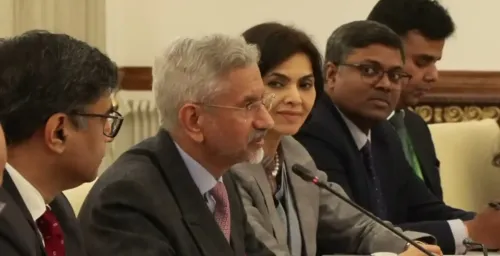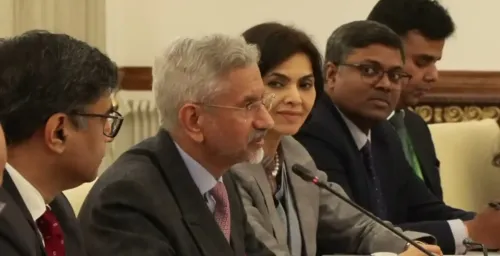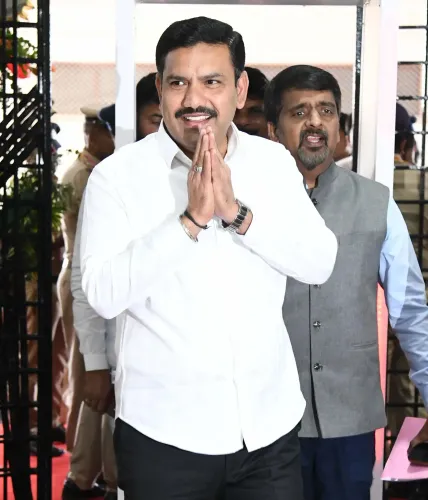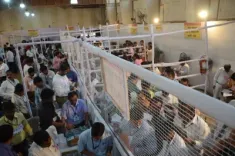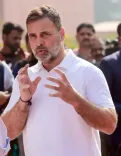Why Did PM Modi Mention Nehru's Name 14 Times During His Speech on 'Op Sindoor'?

Synopsis
Key Takeaways
- Kamal Nath questions PM Modi's references to Nehru.
- Operation Sindoor sparks political debate.
- Both parties must address their historical decisions.
- Indus Waters Treaty remains a contentious point.
- The focus on Nehru indicates ongoing political strategy.
Bhopal, July 30 (NationPress) Former Madhya Pradesh Chief Minister and seasoned Congress figure Kamal Nath remarked on Wednesday that Prime Minister Narendra Modi invoked the name of the late Jawaharlal Nehru a total of 14 times during his address on 'Operation Sindoor' in Parliament.
"It is quite peculiar that Prime Minister Modi would mention Nehru so many times during his discourse about 'Operation Sindoor' in the Lok Sabha. What relevance does Pandit Nehru have in this context?" Nath stated while arriving at the Assembly for the third day of the Monsoon session.
This veteran leader, who has held numerous positions in the cabinet during the UPA government led by former Prime Minister Manmohan Singh, expressed these thoughts in response to PM Modi's sharp criticism of the INDIA coalition, particularly targeting the Congress, in his comments regarding the Pahalgam terror attack and 'Operation Sindoor' in the Lok Sabha on Tuesday.
PM Modi asserted that the Congress government under Nehru relinquished over 38,000 km of territory in Aksai Chin.
He condemned the Indus Waters Treaty, signed by Nehru with Pakistan, as a "significant error."
"Before questioning why Pakistan-Occupied Kashmir hasn't been reclaimed, the Congress should answer: who allowed it to slip away? India continues to bear the consequences of the missteps made by earlier Congress administrations, starting with Nehru," PM Modi remarked.
In retaliation to the Prime Minister's claims, the Congress party countered on Wednesday, stating that the BJP has no solutions for their "current failures" and resorts to tactics of "diversion, distortion, and defamation."
Congress General Secretary for Communications, Jairam Ramesh, commented, "In the Lok Sabha yesterday, both the Home Minister and the Prime Minister displayed symptoms of what could be termed obsessive-compulsive disorder (OCD) concerning Nehru. This behavior may also manifest in the Rajya Sabha today."
He further asserted, "They lack answers to their present-day failures and the legitimate inquiries regarding their policies and actions."
On Tuesday, Union Home Minister Amit Shah also criticized Nehru during the debate, claiming that the opposition party's blunders led to the formation of Pakistan, and attributed the existence of Pakistan-Occupied Kashmir to Nehru's unilateral ceasefire announcement in 1948.
Shah stated, "In 1948, our military was on the verge of a decisive victory in Kashmir. While Sardar Patel advised against it, Nehru declared a unilateral ceasefire. If Pakistan-Occupied Kashmir remains today, it is due to that decision by Nehru. He is accountable for this."
He also asserted that Nehru compromised India's geographical and strategic advantages by giving Pakistan 80% of the Indus water under the Indus Waters Treaty in 1960.



